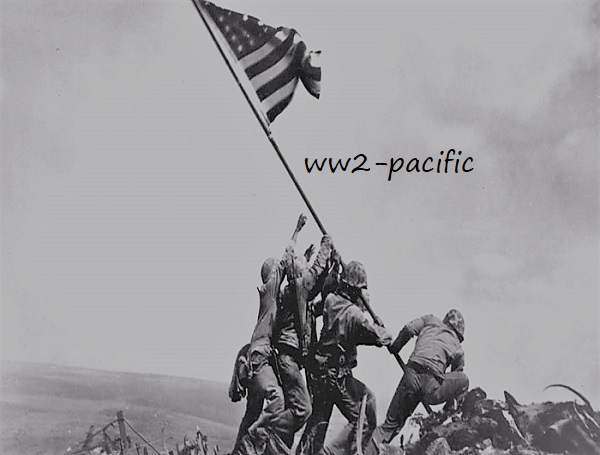Rank and Name, Radio Technician Third Class Alfred Brown Cain.
Unit/Placed in, USS Indianapolis (CA-35) Cruiser, United States Naval Reserve.
USS Indianapolis (CA-35)
In July 1945, Indianapolis completed a top-secret high-speed trip to deliver parts of Little Boy, the first nuclear weapon ever used in combat, to the United States Army Air Force Base on the island of Tinian, and subsequently departed for the Philippines on training duty. At 0015 on 30 July, the ship was torpedoed by the Imperial Japanese Navy submarine I-58, and sank in 12 minutes. Of 1,195 crewmen aboard, approximately 300 went down with the ship. The remaining 890 faced exposure, dehydration, saltwater poisoning, and shark attacks while stranded in the open ocean with few lifeboats and almost no food or water. The Navy only learned of the sinking four days later, when survivors were spotted by the crew of a PV-1 Ventura on routine patrol. Only 316 survived. The sinking of Indianapolis resulted in the greatest single loss of life at sea from a single ship in the history of the US Navy.
On 19 August 2017, a search team financed by Microsoft co-founder Paul Allen located the wreckage of the sunken cruiser in the Philippine Sea lying at a depth of approximately 18,000 ft (5,500 m). On 20 December 2018, the crew of the Indianapolis was collectively awarded a Congressional Gold Medal.
From Wikipedia, the free encyclopedia
Alfred is born on 11 Oct. 1913 in Vernon , Louisiana.
Father, Augustus Brown Cain.
Mother, Mollie Cordenia (Turner) Cain.
Sister(s), Mattie Viola Cain.
Brother(s), Infant Cain 1915/1915.
Alfred enlisted the service in Louisiana with service number # 6241579.
Alfred was KIA when the USS Indianapolis after delivered nuclear Bomb parts for Little Boy at Tinian, was Torpedoed by the Japanese Submarine I-58 and Sunk in the Philippine Sea on 30 July 1945, he is honored with a Purple Heart, Good Combat Ribbon, Good Conduct Medal, Expeditionary Medal, American Campaign Medal, Navy & Marine Presidential Unit Citation, Asiatic-Pacific Campaign Medal, WW II Victory Medal.
Alfred is buried/mentioned at Manila American Cemetery and Memorial Manila, Metro Manila, National Capital Region, Philippines.
Walls of the missing.
Alwyn is also mentioned at U.S.S. Indianapolis National Memorial
Indianapolis, Marion County, Indiana, USA.
(A structure erected in honor of someone whose remains lie elsewhere.)
Alfred Also has a Memorial Grave at Castor Baptist Church Cemetery
Leesville, Vernon Parish, Louisiana, USA
Thanks to, https://www.ussindianapolis.com/
https://www.familysearch.org/tree/person/details/L6NJ-7Y5
Jean Louis Vijgen, ww2-Pacific.com ww2-europe.com
Air Force Info, Rolland Swank.
ABMC Website, https://abmc.gov
Marines Info, https://missingmarines.com/ Geoffrey Roecker
Seabees History Bob Smith https://seabeehf.org/
Navy Info, http://navylog.navymemorial.org
POW Info, http://www.mansell.com Dwight Rider and Wes injerd.
Philippine Info, http://www.philippine-scouts.org/ Robert Capistrano
National Historian
Navy Seal Memorial, http://www.navysealmemorials.com
Family Info, https://www.familysearch.org
Info, https://www.pacificwrecks.com/
Medals Info, https://www.honorstates.org
Find a Grave, https://www.findagrave.com
Tank Destroyers, http://www.bensavelkoul.nl/
WordPress en/of Wooncommerce oplossingen, https://www.siteklusjes.nl/
USS Indianapolis (CL/CA-35) was a Portland-class heavy cruiser of the United States Navy, named for the city of Indianapolis, Indiana. Launched in 1931, the vessel served as the flagship for the commander of Scouting Force 1 for eight years, then as flagship for Admiral Raymond Spruance in 1943 and 1944 while he commanded the Fifth Fleet in battles across the Central Pacific during World War II.
History
Name Indianapolis
Namesake City of Indianapolis, Indiana
Ordered 13 February 1929, Awarded 15 August 1929
Builder New York Shipbuilding Corporation, Camden, New Jersey
Cost $10,903,200 (contract price)
Laid down 31 March 1930, Launched 7 November 1931
Sponsored by Lucy M. Taggart, Commissioned 15 November 1932
Identification
Hull symbol: CL-35 – CA-35, Code letters: NABD
ICS November.svgICS Alpha.svgICS Bravo.svgICS Delta.svg
Nickname(s) “Indy”
Honors and awards
Bronze-service-star-3d.png Silver-service-star-3d.png 10 × battle stars
Length , 610 ft 3 in (186.00 m) loa, 584 ft (178 m) lwl, Beam 66 ft 1 in (20.14 m)
Draft, 17 ft 4 in (5.28 m) (mean), 24 ft (7.3 m) (max)
Installed power, 8 × White-Forster boilers, 107,000 shp (80,000 kW)
Propulsion, 4 × Parsons reduction steam turbines, 4 × screws
Speed 32.7 kn (60.6 km/h; 37.6 mph)
Complement, 95 officers 857 enlisted (as designed), 1,269 officers and men (wartime)
Armament, 9 × 8 in (203 mm)/55 caliber guns (3×3), 8 × 5 in (127 mm)/25 caliber anti-aircraft guns, 2 × 3-pounder 47 mm (1.9 in) saluting guns
Armor , Belt: 3+1⁄4–5 in (83–127 mm)
Deck: 2+1⁄2 in (64 mm), Barbettes: 1+1⁄2 in (38 mm), Turrets: 1+1⁄2–2+1⁄2 in (38–64 mm)
Conning tower: 1+1⁄4 in (32 mm)
Aircraft carried 4 × floatplanes
Aviation facilities 2 × Amidship catapults
General characteristics (1945)[3]
Armament, 9 × 8 in/55 caliber guns (3×3), 8 × 5 in/25 caliber anti-aircraft guns
2 × 3-pounder saluting guns, 6 × quad 40 mm (1.57 in) Bofors anti-aircraft guns
19 × single 20 mm (0.79 in) Oerlikon anti-aircraft cannons
Aircraft carried, 3 × floatplanes
Aviation facilities 1 × Amidship catapults (starboard catapult removed in 1945)
